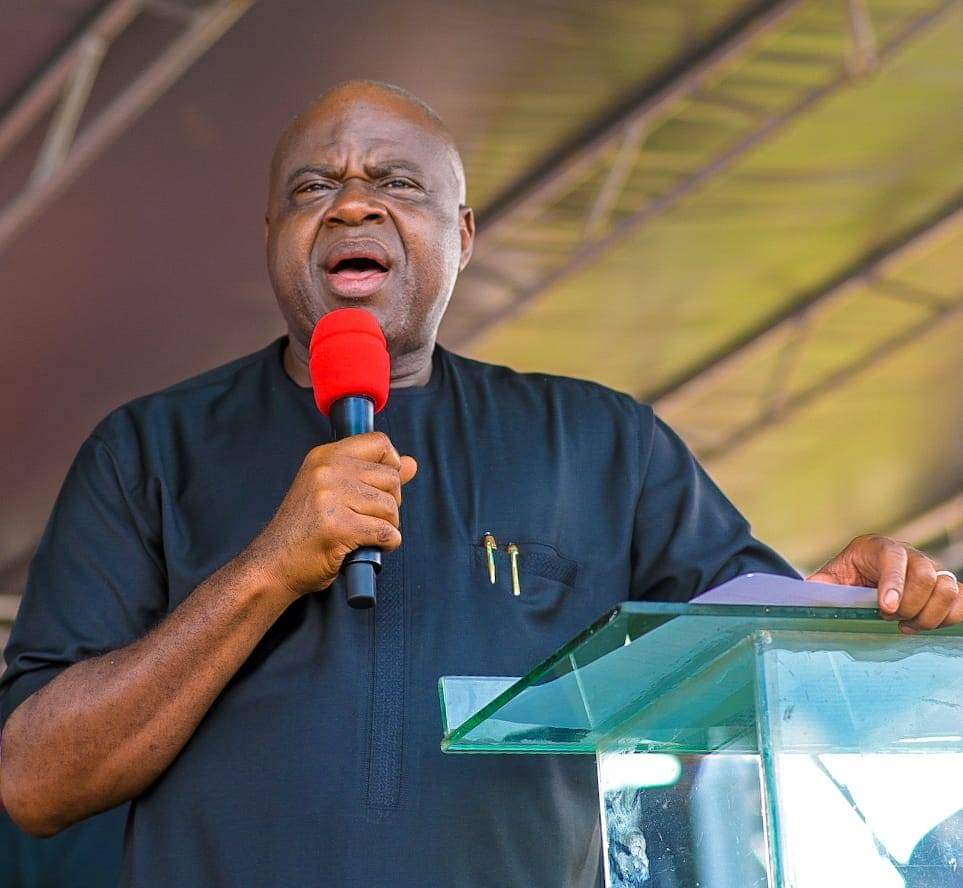Niger Delta
Bayelsa Faults BudgiT 2022 Report

The Bayelsa State Government has dismissed the 2022 fiscal sustainability report on Nigerian states released by BudgiT, a publc finance transparency-focused civil society organisation.
The Tide’s source reports that Rivers State tops the 2022 fiscal performance ranking, followed by Kaduna and Cross River, while Yobe, Bayelsa and Benue States sit at the bottom of the table.
The Bayelsa State Government, in a statement released by its Commissioner for Finance, Mr Maxwell Ebibai, questioned the report.
Ebibai faulted the methodology used to arrive at the rankings and noted that it did not reflect current financial standing of the State.
The Commissioner said the report was merely a rehash of the 2021 ranking.
“Our reaction then as now is that not only is this report faulty, but relies on tangential parameters inconsistent with economic fundamentals.
“As before, the current report erroneously depended on opaque data and criteria bordering largely on the ability of a state to meet its operating expenses (recurrent expenditure) with only its Internally Generated Revenue.
“The very notion of creating a dichotomy between “Federal Allocations” and “Internally Generated Revenue” is a misnomer” the statement said.
It continued that the report is “adding insult to painful injury as over the years, we have protested the absence of true fiscal federalism and inequity of the revenue-sharing formula that robs states such as Bayelsa in favour of the collective,” Ebibai stated in the statement.
According to him, it was incomprehensible not to appreciate that oil and gas had produced at a significant opportunity cost to states and that the derivation revenue compensated for such brutal environmental degradation.
He further recalled that Bayelsa State Government protested against the 2021 ranking as being defective for excluding key revenue sources such as mineral oil derivation funds in the analysis, a position the BudgiT team acknowledged.
“We are again bewildered that they returned to this cynical profiling.
“It should be worrisome to BudgiT that the huge revenue that should accrue to Bayelsa from taxes of oil multinationals operating in the state were being paid to states where the companies have their offices domiciled.
“Notwithstanding the disequilibrium, we are happy to state unequivocally that the financial standing and sustainability of Bayelsa State are sound and not in any jeopardy as the government can comfortably meet its obligations, including regular payment of salaries and pensions,” the statement read in part.
Ebibai noted that it was also disturbing that a state with a low debt profile that was effectively managing its financial liabilities would be ranked low against states with a higher debt profile, more so when Bayelsa was clearing its debts.
On biometric capturing of the state’s civil servants, he said that Bayelsa had successfully concluded the process to achieve payroll transparency.
According to him, the government continues to invest in human capital development and empowerment programmes, without neglecting critical financially demanding infrastructure projects such as the Yenagoa-Oporoma Road and Bridges, the Sagbama-Ekeremor Road with seven bridges and the Nembe-Brass Road with 10 bridges amongst other projects across the state that will stir its economic life.
Ebibai noted that states with limited federal presence were inherently disadvantaged with the ranking methodology where facilities such as ports give a clear edge to some states.
He recommended that for a fair analysis and a more comparable measure of fiscal sustainability, BudgiT should expand its indices to cover derivation revenue as IGR in future profiling.
He explained that the Bayelsa Government was in strong disagreement with the ranking and wished to state categorically that it rejected the report.
Ebibai said it failed to rely on key financial instruments that were legitimate, equitable and sustainable.
Niger Delta
NPC Unveils Digital Registration System In Delta

Niger Delta
Police Uncover Suspects’ Armoury … Recover Weapons In Delta

Niger Delta
Police Caution On Lawless Protests On Court Matters In A’Ibom

-
Maritime5 days ago
Nigeria To Pilot Regional Fishing Vessels Register In Gulf Of Guinea —Oyetola
-

 Sports5 days ago
Sports5 days agoGombe-Gara Rejects Chelle $130,000 monthly salary
-
Maritime5 days ago
Customs Declares War Against Narcotics Baron At Idiroko Border
-

 Sports5 days ago
Sports5 days agoTEAM RIVERS SET TO WIN 4×400 ” MORROW” …Wins Triple jump Silver
-

 Sports5 days ago
Sports5 days agoNPFL Drops To 91st In Global League Rankings
-
Maritime5 days ago
NIMASA,NAF Boost Unmanned Aerial Surveillance For Maritime Security
-

 Sports5 days ago
Sports5 days agoNIGER DELTA GAMES PANACEA TO YOUTH DEV”
-

 Sports5 days ago
Sports5 days agoNPFL Impose Fines On Kwara United Over Fans Misconduct

